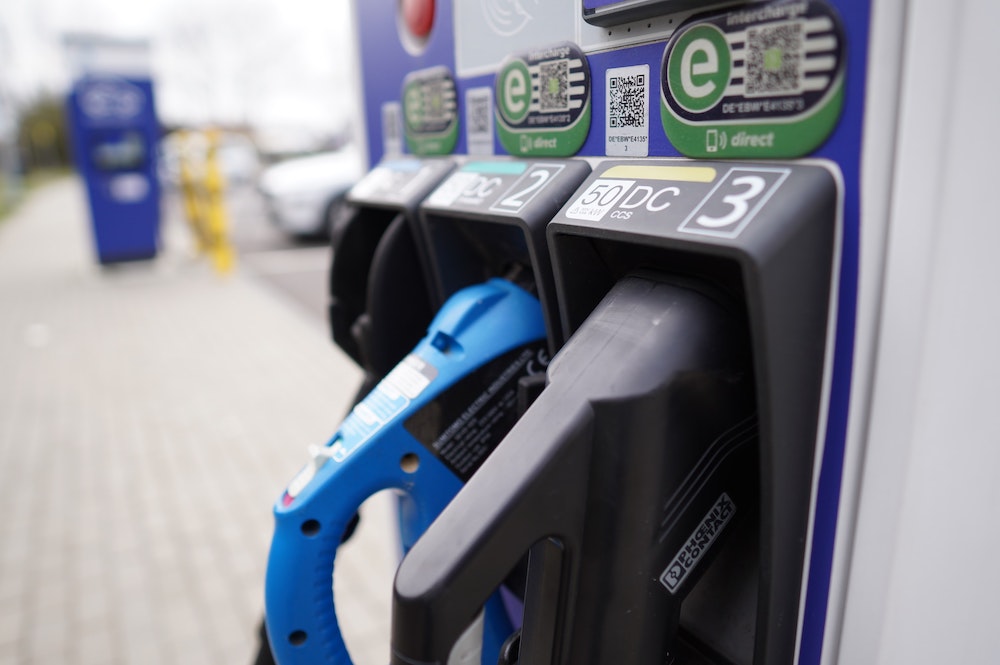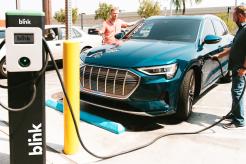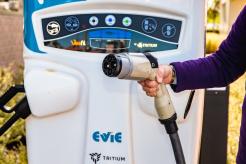Electric vehicles may be garnering plenty of buzz in 2023 — but how much do you really know about EVs? From the cost of ownership to available charging options, here are 36 facts and statistics about electric vehicles that may surprise you.
The Electric Vehicle Market

(Photo by Craig Adderley)
- The global electric vehicle market is expected to surpass $980 billion by 2028, growing at a compound annual growth rate of 24.5% from 2023 to 2028. Increasing environmental awareness will likely drive this growth. Technological advancements in electric vehicles and government initiatives to promote the adoption of electric mobility will also have a huge impact.
- As of 2021, there were more than 16 million electric vehicles on the road worldwide, which is expected to reach 200-270 million EVs by 2030.
- China is the largest market for electric vehicles, accounting for more than 20% of global electric vehicle sales. Other major markets include the United States, Japan, and Europe.
- The Tesla Model Y was the best-selling electric vehicle in the world in 2022.
- The Tesla Model 3 was the second-best-selling electric vehicle in the world.
- Common electrical vehicle types include Hybrid Electric Vehicles (HEVs), Plug-in Hybrid Electric Vehicles (PHEVs), Battery Electric Vehicles (BEVs), and Fuel Cell Electric Vehicles (FCEVs).
- Electric vehicles are eligible for federal tax credits of up to $7,500.
- Many states offer additional incentives for purchasing electric vehicles, such as rebates, tax credits, and discounted fees.
- Transitioning to EVs could create over 150,000 jobs in the U.S. by 2030.
- Electric vehicles can reduce the risk of oil price fluctuations, as electricity prices are generally more stable than oil prices.
- The Chevrolet Bolt was the first mass-market electric vehicle to have a range of over 200 miles per charge.
- Electric vehicles are becoming increasingly popular in the car-sharing and ride-hailing industries, with companies like Uber and Lyft adding electric vehicles to their fleets.
- Electric buses are becoming increasingly popular in cities around the world as a way to reduce air pollution and improve public transportation.
- Electric school buses are becoming increasingly popular as a way to reduce emissions and improve air quality near schools.
- Companies like UPS and DHL are developing electric delivery trucks to reduce emissions and improve efficiency in last-mile delivery.
- Companies such as Airbus and Boeing are developing Electric aircraft to reduce emissions and noise pollution in the aviation industry.
Electric Vehicle Performance

(Photo by Jannes Glas on Unsplash)
- The average range of electric vehicles is 211 miles per charge as of December 2022. This range is expected to increase significantly as battery technology continues to improve.
- Owners can charge their electric vehicles using a variety of charging methods, including Level 1 (120V), Level 2 (240V), and Level 3 (DC fast charging).
- The Mercedes-Benz EQS has the longest reported range of any electric vehicle on the market, with over 450 miles per charge.
- Electric vehicles have fewer moving parts than gasoline-powered vehicles, reducing the potential for mechanical failure.
- Electric vehicles have regenerative braking systems, which convert the energy lost during braking into electricity and store it in the battery, increasing the range of the car.
- Electric vehicles have instant torque, which means they have strong acceleration from a standstill, making them more responsive and fun to drive. Electric cars accelerate faster than internal combustion engine (ICE) vehicles, with some models reaching 0-60 mph in less than 3 seconds.
Electric Vehicle Costs

(Photo by Jenny Ueberberg on Unsplash)
- The cost of batteries for electric vehicles has dropped more than 80% since 2012. This cost reduction has helped to make electric cars more affordable for consumers.
- The average cost of charging an electric vehicle at home is about $56 per month. This cost will vary depending on the size of the battery, driving habits, and electricity rates.
- The average cost of charging an electric vehicle at a public charging station is $0.30-0.60 per kilowatt-hour. This cost is usually higher than charging at home, but it can be cheaper in some areas depending on the electricity rates.
- Electric vehicles have lower maintenance costs than gasoline-powered vehicles, with savings of around $600 per year.
Electric Vehicle Charging

(Photo by Sophie Jonas on Unsplash)
- As of late 2022, there are over 47,000 public electric vehicle charging stations in the United States, and this number will continue growing as more people adopt electric vehicles.
- As of late 2022, there are more than 2.3 million charging stations worldwide. Most public charging stations are Level 2 (240V) chargers, which can charge a fully depleted battery in 6-8 hours.
- Owners can charge their EVs using V2G (Vehicle-to-Grid) technology which allows electric vehicles to provide power to the grid during times of high demand.
- Electric vehicle charging infrastructure is expanding rapidly, with many cities and states investing in public charging networks.
Environmental Benefits of EVs

(Photo by Kenny Leys on Unsplash)
- Electric vehicles produce no tailpipe emissions, which can help to improve air quality in cities and reduce the impact of air pollution on human health.
- Electric vehicles are generally quieter than gasoline-powered ones, which can help reduce noise pollution in cities, improving quality of life.
- Electric vehicles can be charged using renewable energy sources, such as solar or wind power.
- The total lifecycle emissions of an EV are up to 89% less than those of a gasoline-powered vehicle.
- Electric vehicles can reduce dependence on foreign oil and enhance energy security.
- Electric vehicles can reduce the need for large-scale infrastructure projects, such as pipelines and refineries, reducing environmental impacts.
Are you interested in learning more about the latest EV trends? Join us at the EV Charging Summit & Expo!






